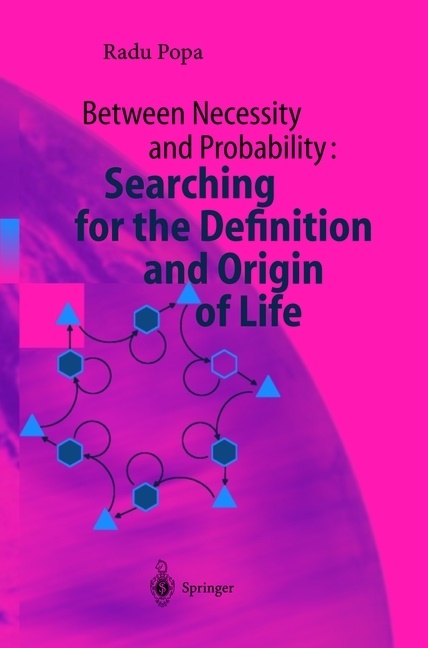Read more
This study investigates the major theories of the origins of life in the light of modern research with the aim of distinguishing between the necessary and the optional and between deterministic and random influences in the emergence of what we call 'life.' Life is treated as a cosmic phenomenon whose emergence and driving force should be viewed independently from its Earth-bound natural history. The author synthesizes all the fundamental life-related developments in a comprehensive scenario, and makes the argument that understanding life in its broadest context requires a material-independent perspective that identifies its essential fingerprints.
List of contents
The Early History of Bio-Energy.- The Origin of Cell Boundaries and Metabolism.- The Origin of the Early Specificity; The Order, Complexity and Diversity of Life.- The Origin of the Handedness.- The Early History of Bio-Information.- The Purpose-Like Nature of Life.- Assembling the Early Puzzle of Life.- The Material-Independent Signatures of Life; Forensic Tools of Astrobiology.- Appendix A. Models and Theories of Early Life.- Appendix B. A Chronology of Definitions and Interpretations of Life.
Summary
This study investigates the major theories of the origins of life in the light of modern research with the aim of distinguishing between the necessary and the optional and between deterministic and random influences in the emergence of what we call ‘life.’ Life is treated as a cosmic phenomenon whose emergence and driving force should be viewed independently from its Earth-bound natural history. The author synthesizes all the fundamental life-related developments in a comprehensive scenario, and makes the argument that understanding life in its broadest context requires a material-independent perspective that identifies its essential fingerprints.
Additional text
From the reviews:
"In exobiology one can never expect ultimate answers, only illumination. This is indeed what the book does, and what makes it interresting in its field, in giving an interim status report. The very extensive references list makes clear that we are far from any paradigma in exobiology, despite the fact that a lot happened since the appearance of Schroedingers booklet "What is Life?" in 1944.
"Popa’s contribution is a wide ranging critique of current thinking on life’s origin. For those familiar with the problem, this is an engaging personal viewpoint." (P J Wilkinson, The Physicist Jan./Feb. 2005, vol. 42, page 33)
"The book … aims to report new developments in research and teaching in the inter-disciplinary fields of astrobiology and biogeophysics. This encompasses all aspects of research into the origins of life – from the creation of matter to the emergence of complex life forms … . The hard cover book is nicely edited following Springer’s high-quality standards." (Roland Carchon, Physicalia, Vol. 57 (3), 2005)
"This is an interesting book that attempts to systematize life and its origin in an information-theoretic manner. … The two most important themes are hierarchies and phase transitions as properties of life. … In conclusion, a book for the specialist astrobiologist – trained in both biochemistry and biophysics – in search of novel ideas." (Alex Ellery, International Journal of Astrobiology, Vol. 6 (2), 2007)
Report
From the reviews:
"In exobiology one can never expect ultimate answers, only illumination. This is indeed what the book does, and what makes it interresting in its field, in giving an interim status report. The very extensive references list makes clear that we are far from any paradigma in exobiology, despite the fact that a lot happened since the appearance of Schroedingers booklet "What is Life?" in 1944.
"Popa's contribution is a wide ranging critique of current thinking on life's origin. For those familiar with the problem, this is an engaging personal viewpoint." (P J Wilkinson, The Physicist Jan./Feb. 2005, vol. 42, page 33)
"The book ... aims to report new developments in research and teaching in the inter-disciplinary fields of astrobiology and biogeophysics. This encompasses all aspects of research into the origins of life - from the creation of matter to the emergence of complex life forms ... . The hard cover book is nicely edited following Springer's high-quality standards." (Roland Carchon, Physicalia, Vol. 57 (3), 2005)
"This is an interesting book that attempts to systematize life and its origin in an information-theoretic manner. ... The two most important themes are hierarchies and phase transitions as properties of life. ... In conclusion, a book for the specialist astrobiologist - trained in both biochemistry and biophysics - in search of novel ideas." (Alex Ellery, International Journal of Astrobiology, Vol. 6 (2), 2007)

